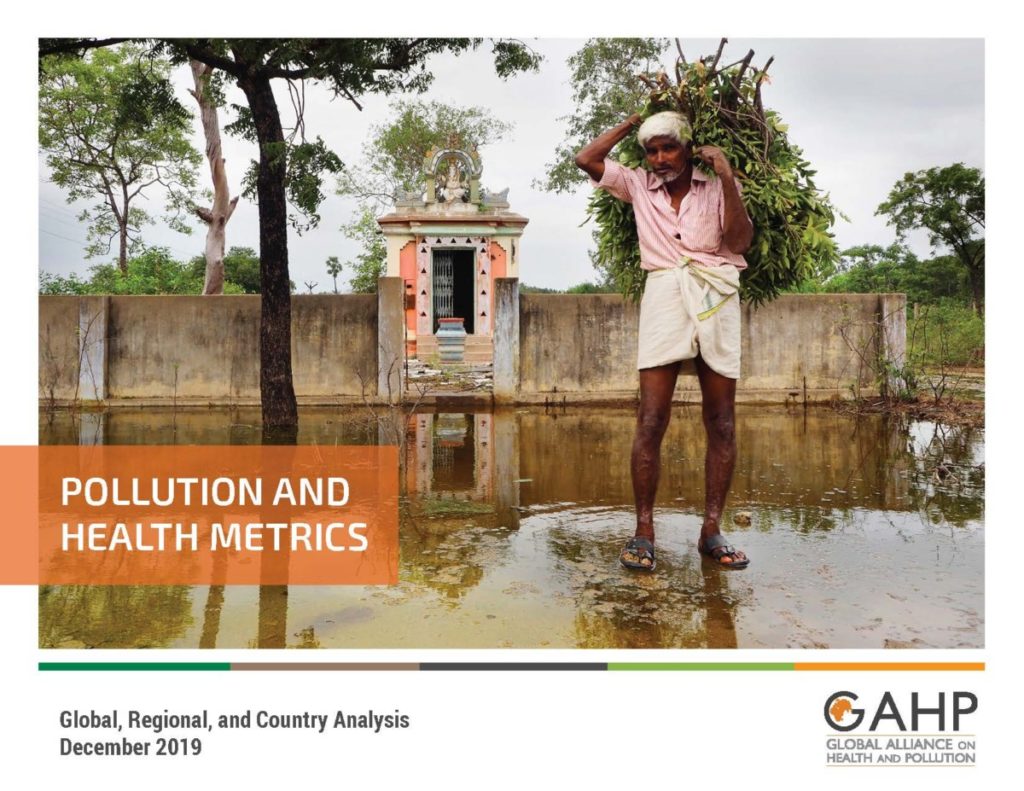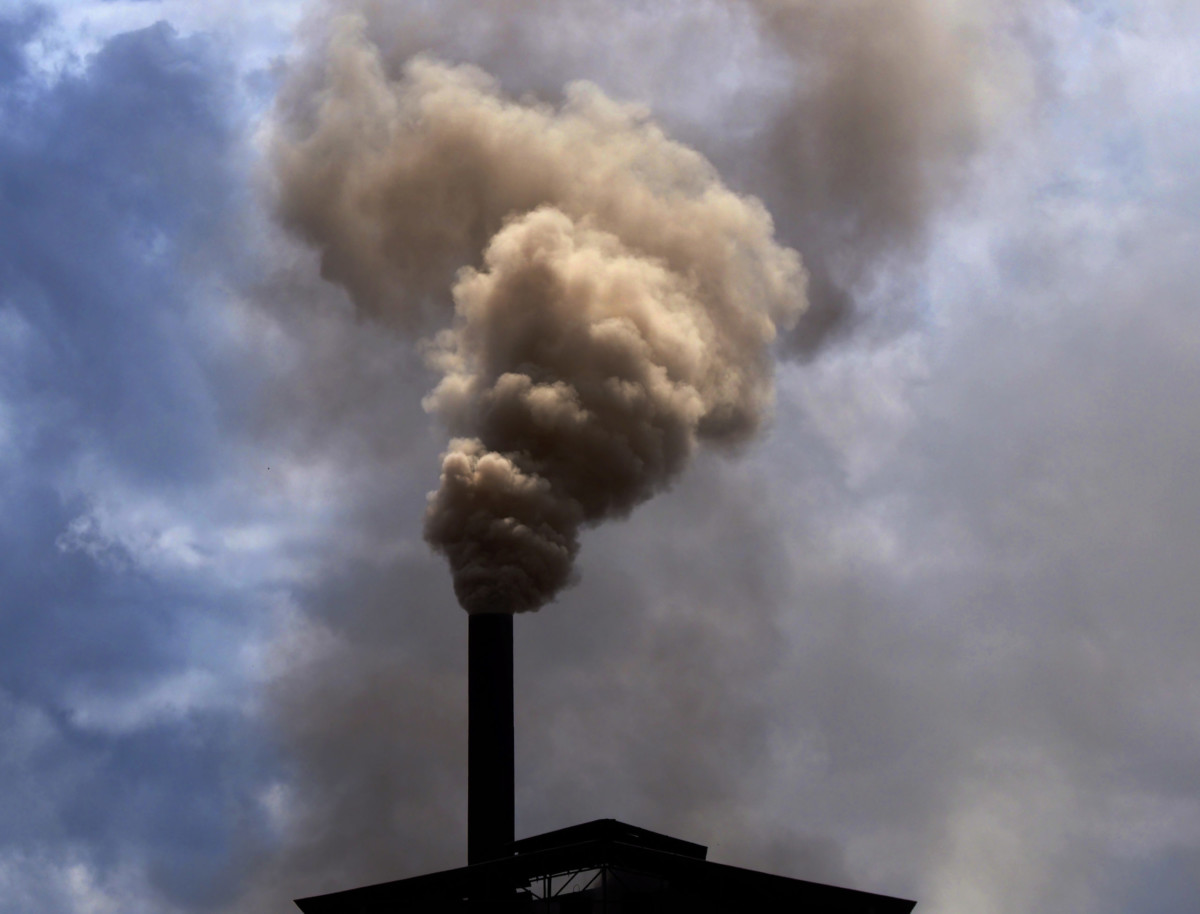2022 Progress Update of the 2017 Lancet Commission on Pollution and Health
The Commission on Pollution and Health is an initiative of The Lancet, the Global Alliance on Health and Pollution (GAHP), and the Icahn School of Medicine at Mount Sinai, with additional coordination and input from United Nations Environment (UNEP), United Nations Industrial Development Organization (UNIDO), and the World Bank.
The Commission comprises many of the world’s most influential leaders, researchers and practitioners in the fields of pollution management, environmental health and sustainable development. It aims to reduce air, soil and water pollution by communicating the extraordinary health and economic costs of pollution globally, providing actionable solutions to policy-makers and dispelling the myth of pollution’s inevitability. The Commission Report was published in The Lancet on October 19, 2017.
The progress update is published in Lancet Planetary Health.
About the Report
Environmental pollution is the single largest cause of disease and death in low- and middle-income countries (LMICs).
Environmental pollution is the single largest cause of disease and death in low- and middle-income countries (LMICs). Data from the World Health Organization and others suggest that in 2012 exposures to polluted air, water and soil contributed to an estimated 8.9 million deaths worldwide. By comparison, deaths from HIV/AIDS, malaria and tuberculosis caused a combined 2.5 million deaths. More than one death in seven worldwide is the consequence of environmental pollution. Despite the tremendous impacts on human health and the global economy, environmental pollution has been undercounted and insufficiently addressed in national policies and international development agendas.
Pollution is strongly linked to poverty. The overwhelming majority of the disease burden from pollution—over 92%—falls on residents of LMICs. The disproportionate poisoning of the poor is a global environmental injustice. In addition to impacts on human health, pollution carries an economic cost that is often overlooked. Pollution-related illnesses result in direct medical costs, costs to healthcare systems and opportunity costs resulting from lost productivity and economic growth.
The good news is that pollution controls are feasible, cost-effective and replicable. The most effective strategies control pollution at its source. In many countries, lead has been removed from gasoline, industrial discharges to air and water are controlled and highly toxic pesticides have been replaced by safer substitutes.
Pollution-related illnesses result in direct medical costs, costs to healthcare systems and opportunity costs resulting from lost productivity and economic growth.
Nevertheless, environmental pollution has not received the priority it merits in the international development agenda. We need to measure and demonstrate the true costs of pollution, and the urgency of addressing it now for the benefit of current and future generations.
Press and Resources
Press Release
Download the official Lancet Planetary Health Report press release in your preferred language.
Full Report
Supplementary Annexes
Executive Summary
Key Messages
Resources
Video
Stories from the ground– photos and audio clips are available upon request.
The silent killer: the struggle to stop lead poisoning in Senegal
When cutting air pollution becomes personal in Indonesia
No safe haven: how cooking at home can be fatal in Madagascar
Contact
Authors available for interviews
For interviews with the Article author, please contact:
Angela Bernhardt
angela@pureearth.org
Launch Events/Press Briefings
Launch events and press briefings will take place around the world in NYC; Washington, D.C.; Brussels; Ottawa; Delhi. Live streaming options are available at some events. See individual event details.
- May 19th at NYU School of Global Public Health Room 801 on 708 Broadway, NYC from 9-12 EST.
- May 22nd at World Heart Federation Summit on Campus Biotech, Geneva, Switzerland from 9:30-10 am CET.
- June 15th at TERI India, New Delhi, India, more information soon.
2019 Pollution and Health Metrics: Global, Regional and Country Analysis
The 2019 Pollution and Health Metrics: Global, Regional and Country Analysis report from the Global Alliance on Health and Pollution (GAHP) updates findings from The Lancet Commission on Pollution and Health, and provides a ranking of pollution deaths on a global, regional and country level.
The 2019 publication found that pollution remains the world’s largest environmental threat to human health, responsible in 2017 for 15% of all deaths globally, and 275 million Disability-Adjusted Life Years. The 2019 report, which uses the most recent Global Burden of Disease data from the Institute of Health Metrics Evaluation, underscores the extent and severity of harm caused by air, water, and occupational pollution.

2017 Lancet Commission on pollution and health
The Commission on Pollution and Health is an initiative of The Lancet, the Global Alliance on Health and Pollution (GAHP), and the Icahn School of Medicine at Mount Sinai, with additional coordination and input from United Nations Environment, United Nations Industrial Development Organization (UNIDO), and the World Bank. The Commission comprises many of the world’s most influential leaders, researchers and practitioners in the fields of pollution management, environmental health and sustainable development. The aim of the Commission is to reduce air, soil and water pollution by communicating the extraordinary health and economic costs of pollution globally, providing actionable solutions to policy-makers and dispelling the myth of pollution’s inevitability. The Commission Report was published in The Lancet, one of the world’s most prestigious and widely read medical journals, on October 19, 2017.
The 2017 Report from The Lancet Commission on Pollution and Health analyzes and communicates the massive scope of the health and economic costs of air, water and soil pollution. Through analyses of existing and emerging data, the Report reveals pollution’s severe and underreported contribution to the Global Burden of Disease. It uncovers the economic costs of pollution to low- and middle-income countries, and compare the costs of inaction to the costs of available solutions. It informs key decision makers around the world about the burden that pollution places on health and economic development, and about cost-effective pollution control solutions and strategies. The Commission will bring pollution squarely into the international development agenda.
Country breakdown – Deaths attributable to pollution – 2015 (based on Global Burden of Disease Data)
Click here for the full 2017 report, executive summary, data sets, and infographics.

